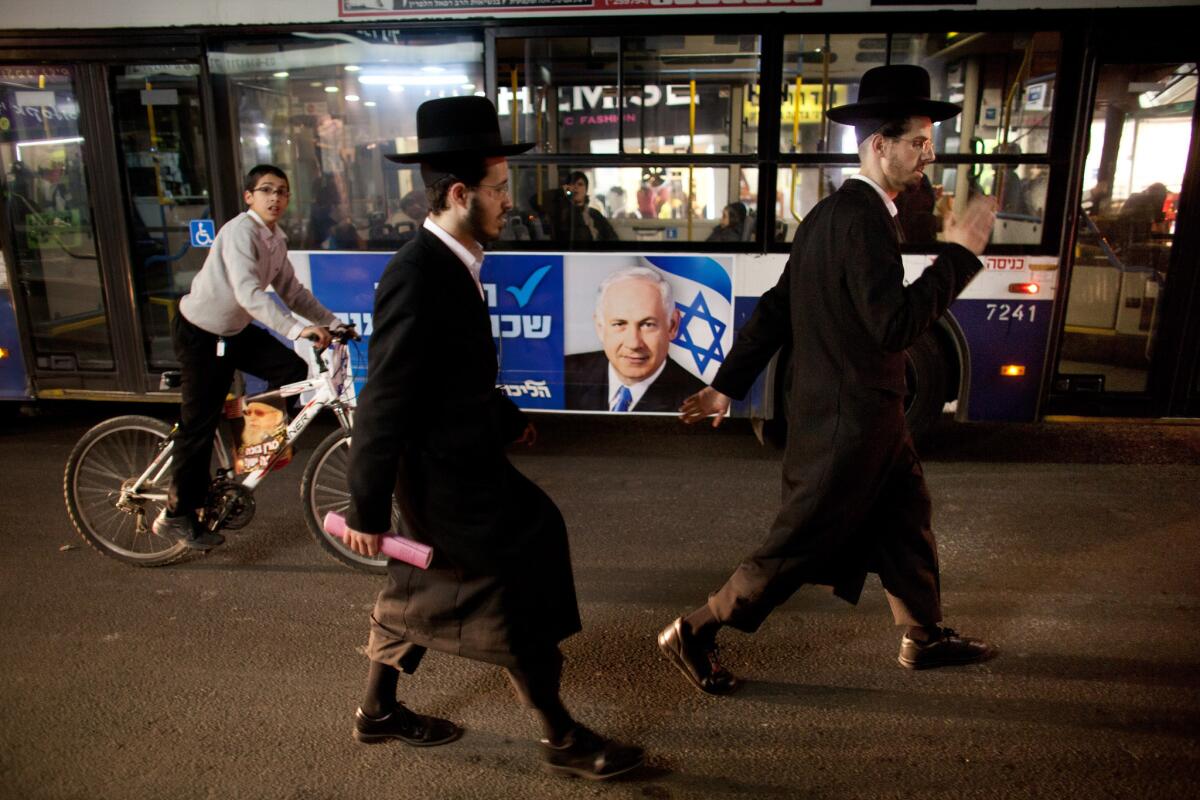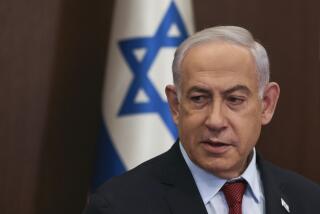Israelis head to the polls in national vote

JERUSALEM – Millions of Israelis began streaming to polls Tuesday in a national election that will help shape the nation’s future course amid rising regional instability and a ballooning budget deficit at home.
More than 10,000 polling stations opened at 7 a.m. to receive votes cast by as many as 5.6 million eligible voters. But far fewer may actually end up voting. Voter turnout during the last election in 2009 dropped to 65%.
Polls will close by 10 p.m., and preliminary results are expected late Tuesday night with an official tally announced Wednesday.
Many experts predict that Prime Minister Benjamin Netanyahu’s conservative Likud Party, which is running on a joint slate with former Foreign Minister Avigdor Lieberman’s nationalist Yisrael Beiteinu, will win the most votes, securing Netanyahu’s third term.
But recent polls suggested that support for the Netanyahu-led slate was slipping. Though the two parties separately won a total of 42 seats in 2009, their joint slate is expected to receive 32-35 seats this time around.
Some of their traditional supporters appear to be shifting to the revamped nationalist religious party Jewish Home, led by former high-tech investor Naftali Bennett. That party is known for its staunch stance against Palestinian statehood and a call to annex part of the West Bank.
In his final campaign stop Monday, Netanyahu appealed to Israelis to give his party a clear mandate, which he said would boost Israel’s ability to cope with rising international and domestic challenges.
“You need to decide what you’re voting for,” Netanyahu said, “a weak and scattered Israel or a strong and united Israel.”
Rivals say a strong turnout by liberal, secular and Arab voters may yet drive Netanyahu from office. Labor Party leader Shelly Yachimovich urged her supporters Monday to bring a “revolution and replace the Netanyahu government.”
But in recent elections, turnout in secular and Arab communities has dropped to under 60%, while turnout among religious voters and West Bank settlers is usually above 80%.
ALSO:
Israel election suspense centers on Likud‘s coalition partners
Inauguration 2013: What foreign media say about Obama’s second term
Algeria: Two Canadians among hostage takers, prime minister says
More to Read
Start your day right
Sign up for Essential California for news, features and recommendations from the L.A. Times and beyond in your inbox six days a week.
You may occasionally receive promotional content from the Los Angeles Times.






